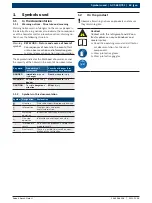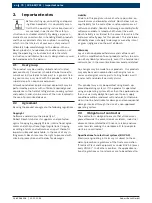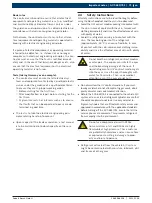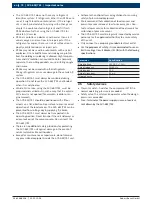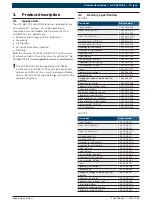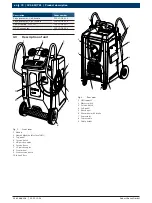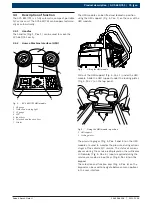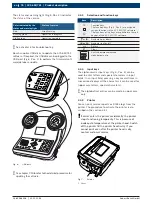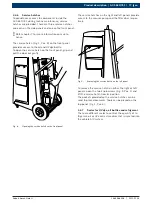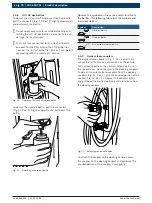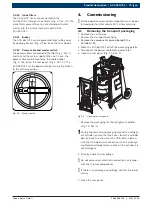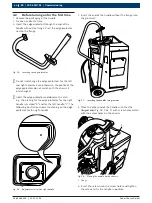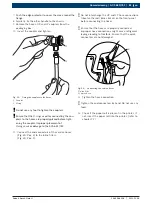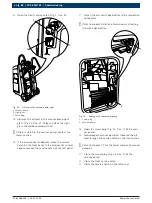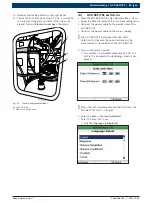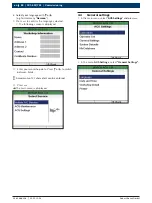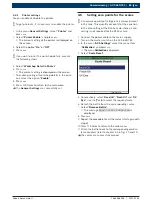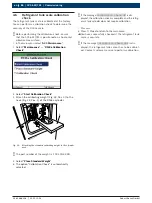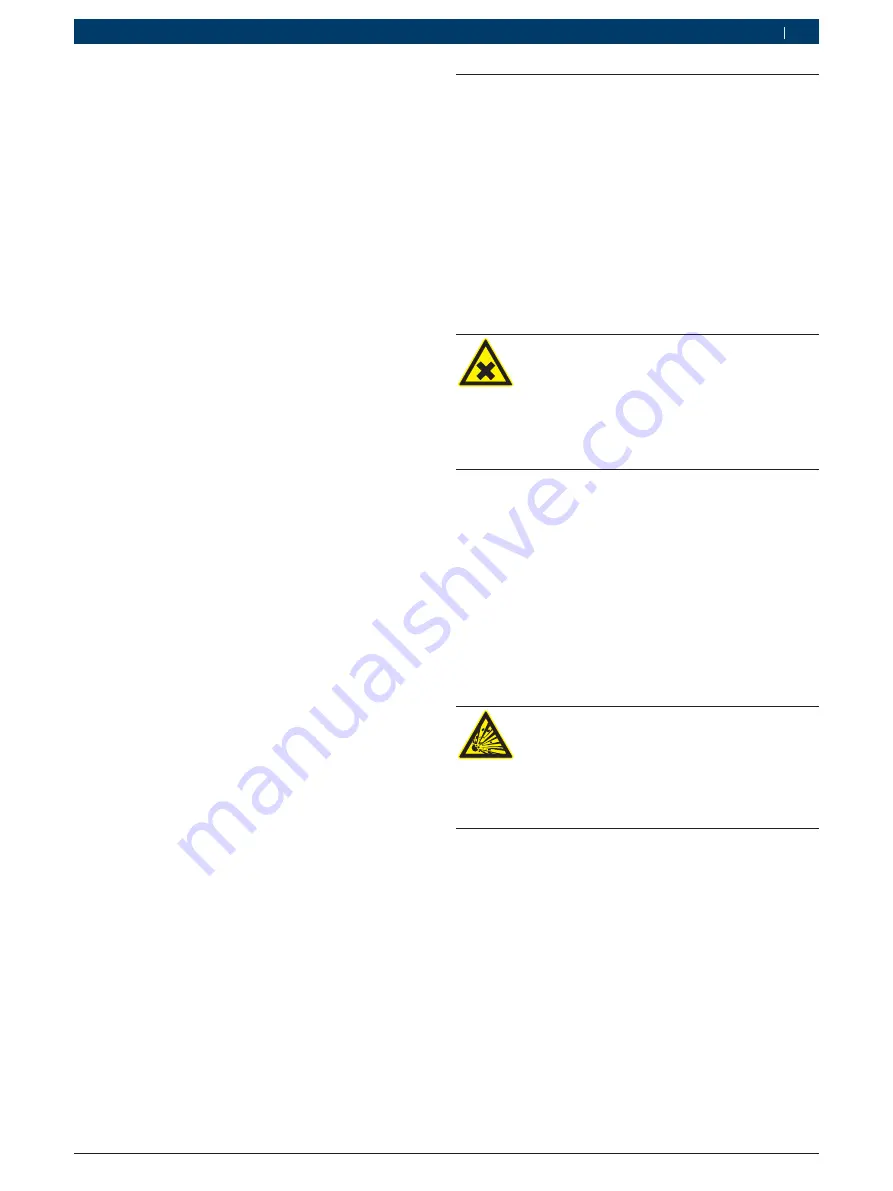
1 689 988 238
2012-11-06
|
Robert Bosch GmbH
Important notes | ACS 651/751 | 71
en
Basic rules
The contractor is bound to ensure that all electrical
equipment and operating material is set up, modified
and maintained by skilled electricians only or under
the guidance and supervision of a skilled electrician in
accordance with electrical engineering principles.
Furthermore, the contractor must ensure that all elec-
trical equipment and operating material is operated in
keeping with electrical engineering principles.
If a piece of electrical equipment or operating material
is found to be defective, i.e. it does not or no longer
complies with electrical engineering principles, the con-
tractor must ensure that the fault is rectified immedi-
ately and, in the event that imminent danger exists, also
ensure that the electrical equipment or the electrical
operating material is not used.
Tests (taking Germany as an example):
R
The contractor must ensure that all electrical sys-
tems and equipment are tested by a qualified electri-
cian or under the guidance of a qualified electrician
to ensure they are in proper working order:
$
Before starting for the first time.
$
After modification or repair before starting for the
first time.
$
At given intervals. Set intervals such as to ensure
that faults that can be expected to occur are de-
termined in good time.
R
The test is to take the electrical engineering prin-
ciples relating hereto into account.
R
Upon request of the trade association, a test manual
is to be maintained into which specific entries are
made.
2.4
Safety Instructions
All safety instructions are to be read thoroughly before
using the Bosch product and they must be observed.
R
Avoid the UV contrast medium coming into contact with
the skin. In case of contact with the skin, remove wet
clothing immediately and rinse the affected area of skin
with plenty of water.
R
Avoid the refrigerant coming into contact with the
skin. The low boiling point of the refrigerant
(approximately -30 °C) can cause frostbite. In case
of contact with the skin, remove wet clothing imme-
diately and rinse the affected area of skin with plenty
of water.
Do not breathe in refrigerant, contrast medium
or oil vapors. The vapors can irritate the eyes
and the breathing passage of the nose. If
liquid refrigerant or UV contrast medium gets
into the eyes, rinse the eyes thoroughly with
water for 15 minutes. Then, seek medical
attention, even if the eyes do not hurt.
R
Do not swallow the UV contrast medium. If you swal-
low by accident, do not attempt to trigger vomit; drink
plenty of water and seek medical attention.
R
Before the ACS 651/751 is connected to the vehicle A/C
system or to an external refrigerant cylinder, ensure that
the quick couplers do not leak. Use only external re-
frigerant cylinders that are fitted with safety valves and
approved in accordance with the applicable standards.
R
Before turning off the ACS 651/751, ensure that all the
service phases are complete. This prevents refrigerant
from escaping into the environment.
Do not use compressed air with R134a.
Some mixtures of air and R134a are highly
flammable at high pressure. These mixtures
are potentially hazardous and can cause fires
or explosions resulting in damage to prop-
erty and injury to persons.
R
Refrigerant extracted from the vehicle A/C system
might be contaminated with moisture, lubricant, dirt
and traces of other gases.













